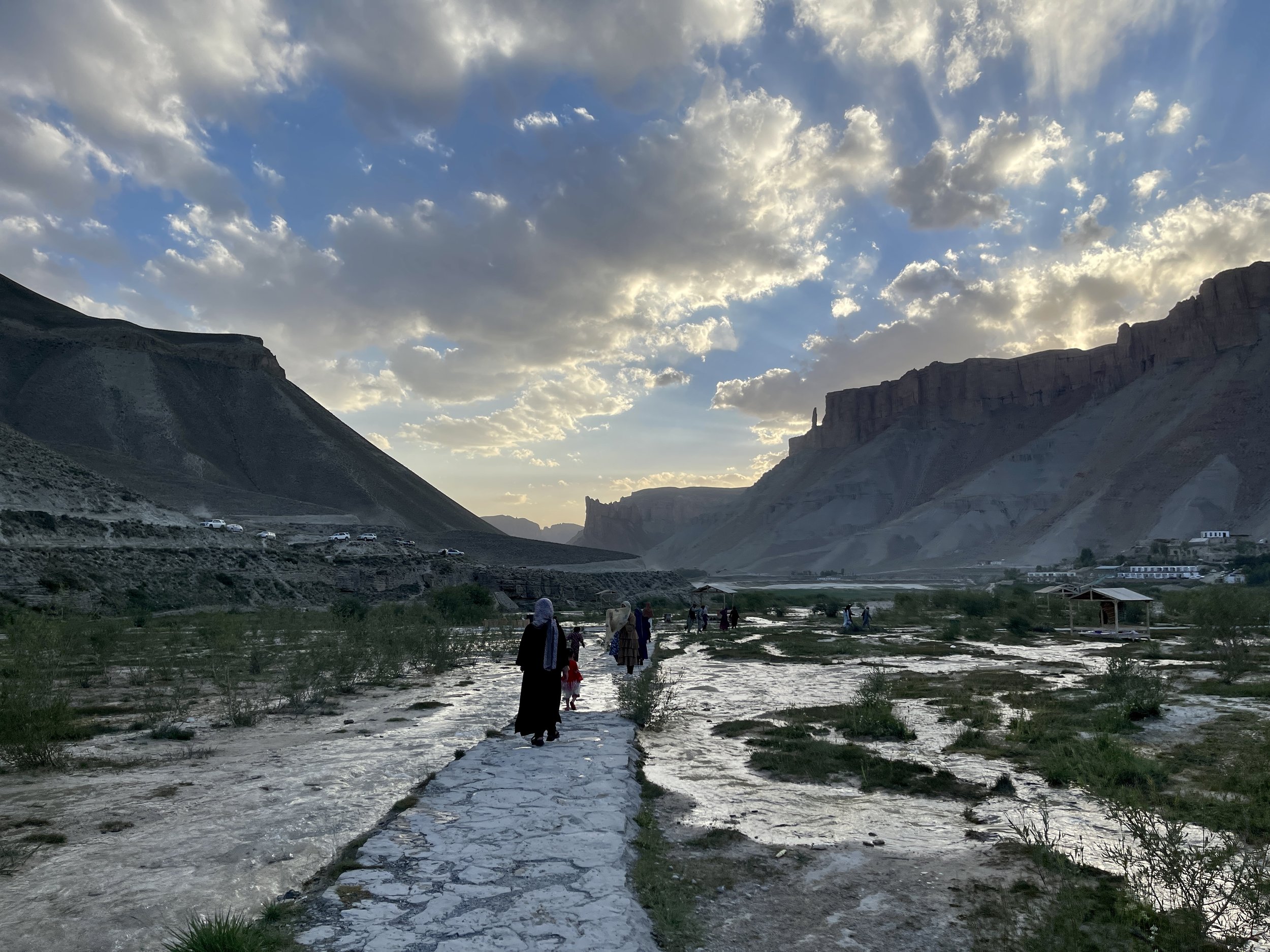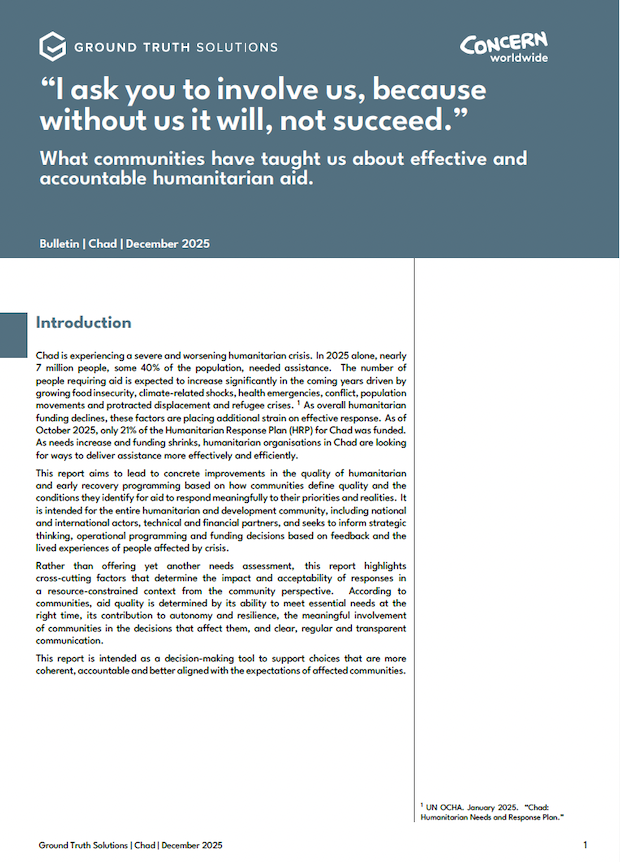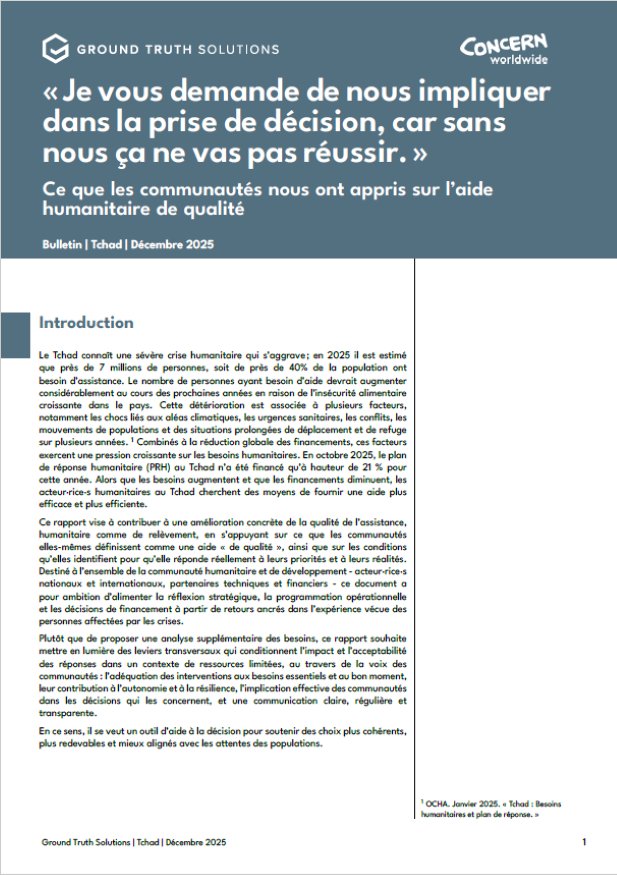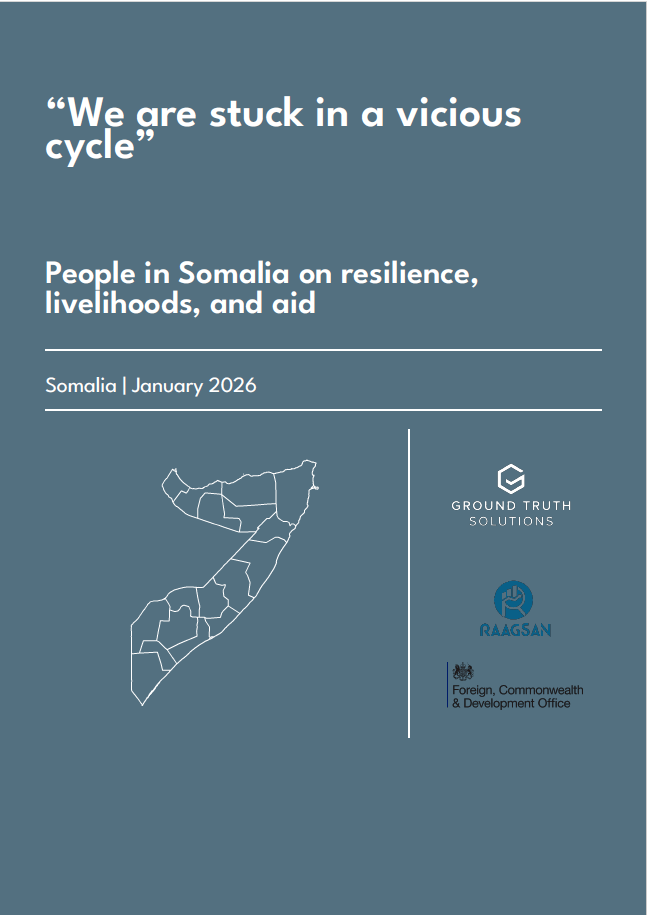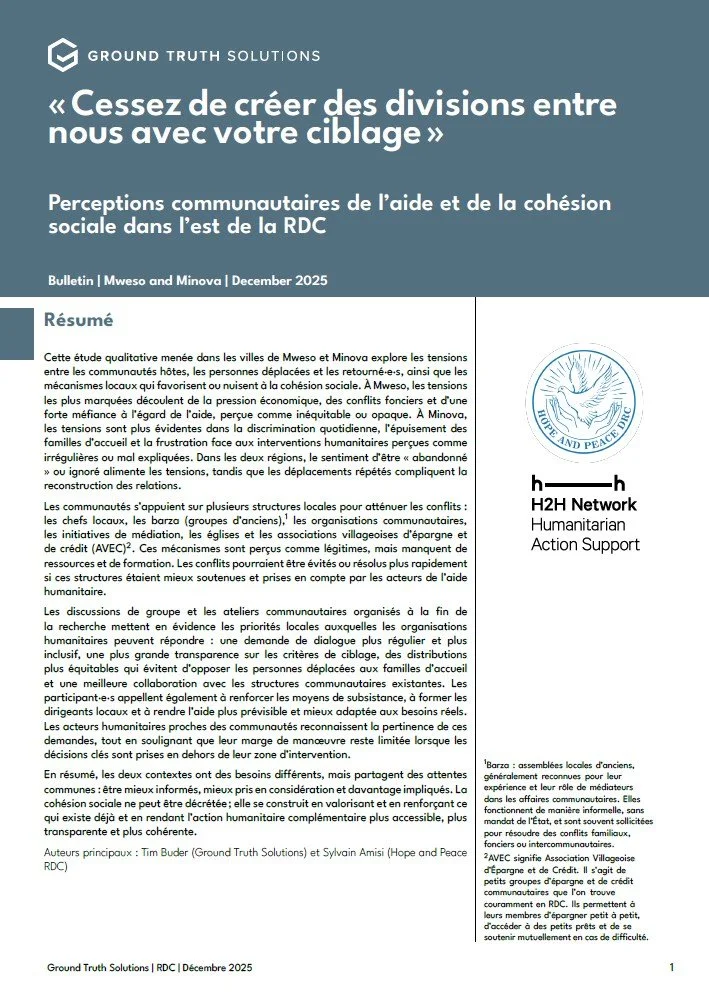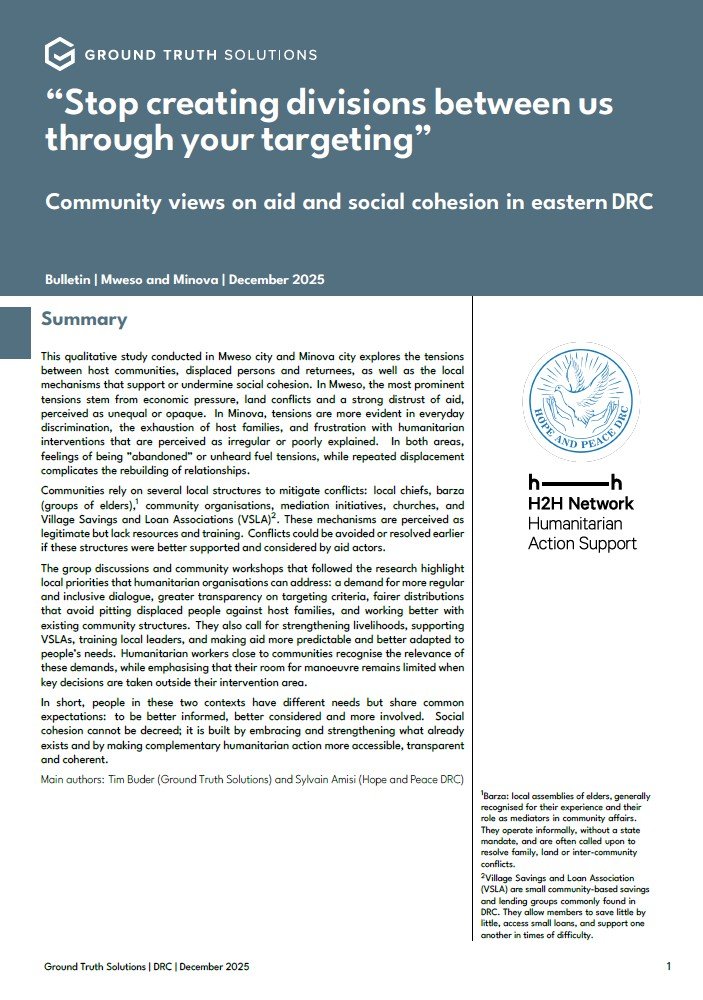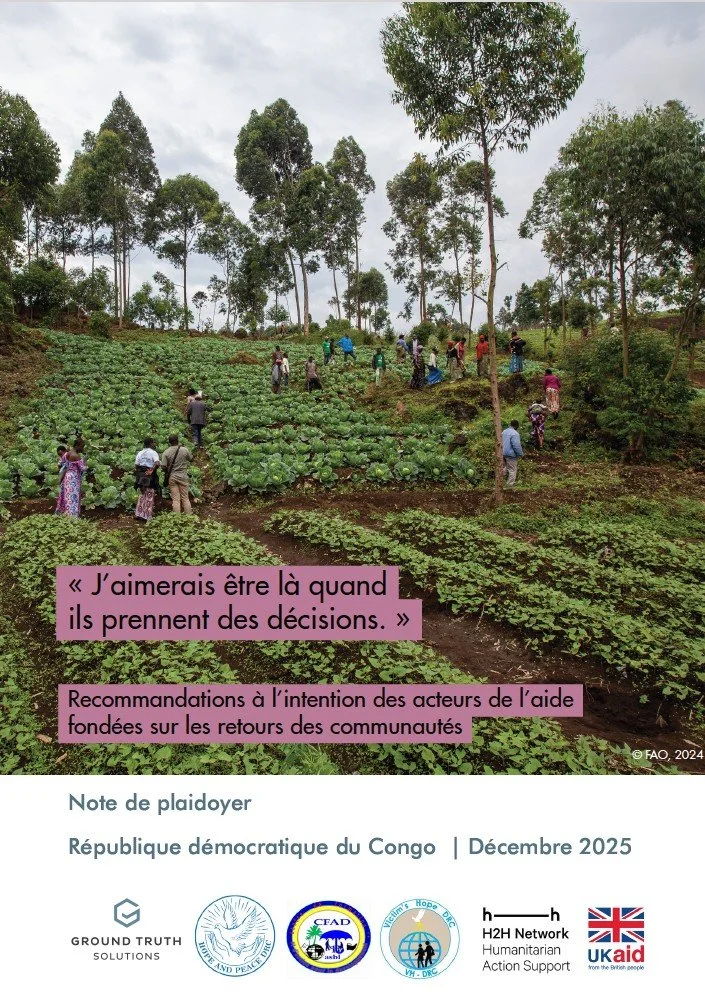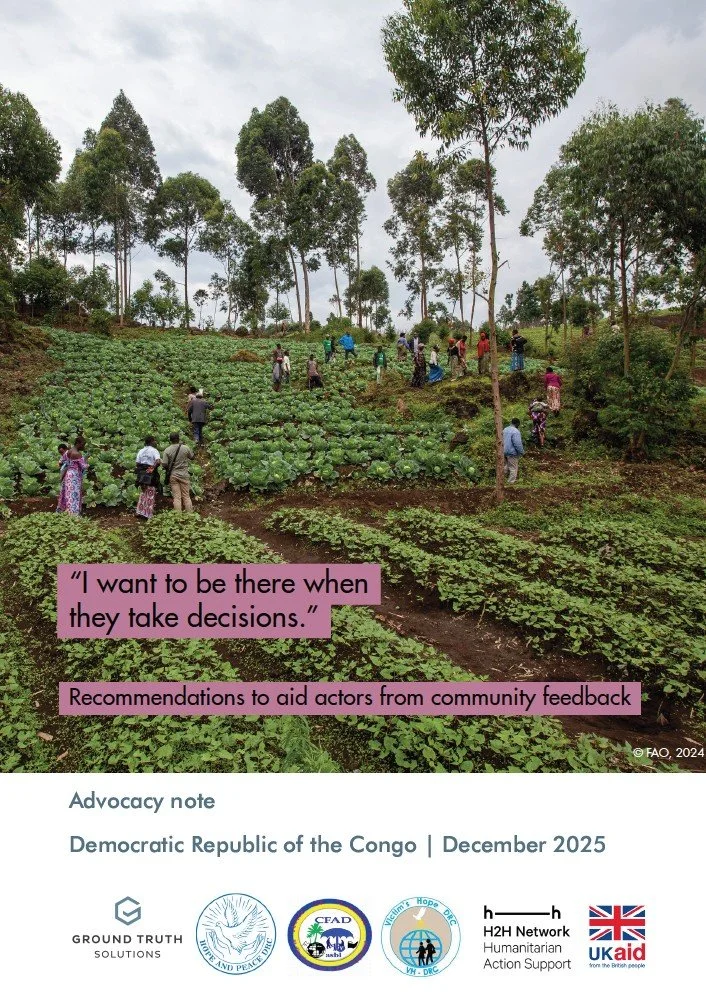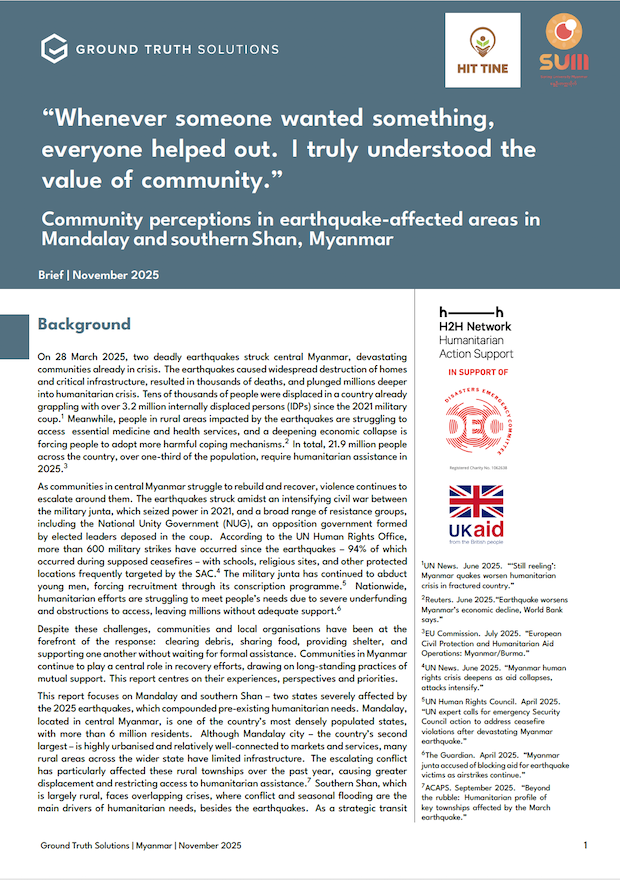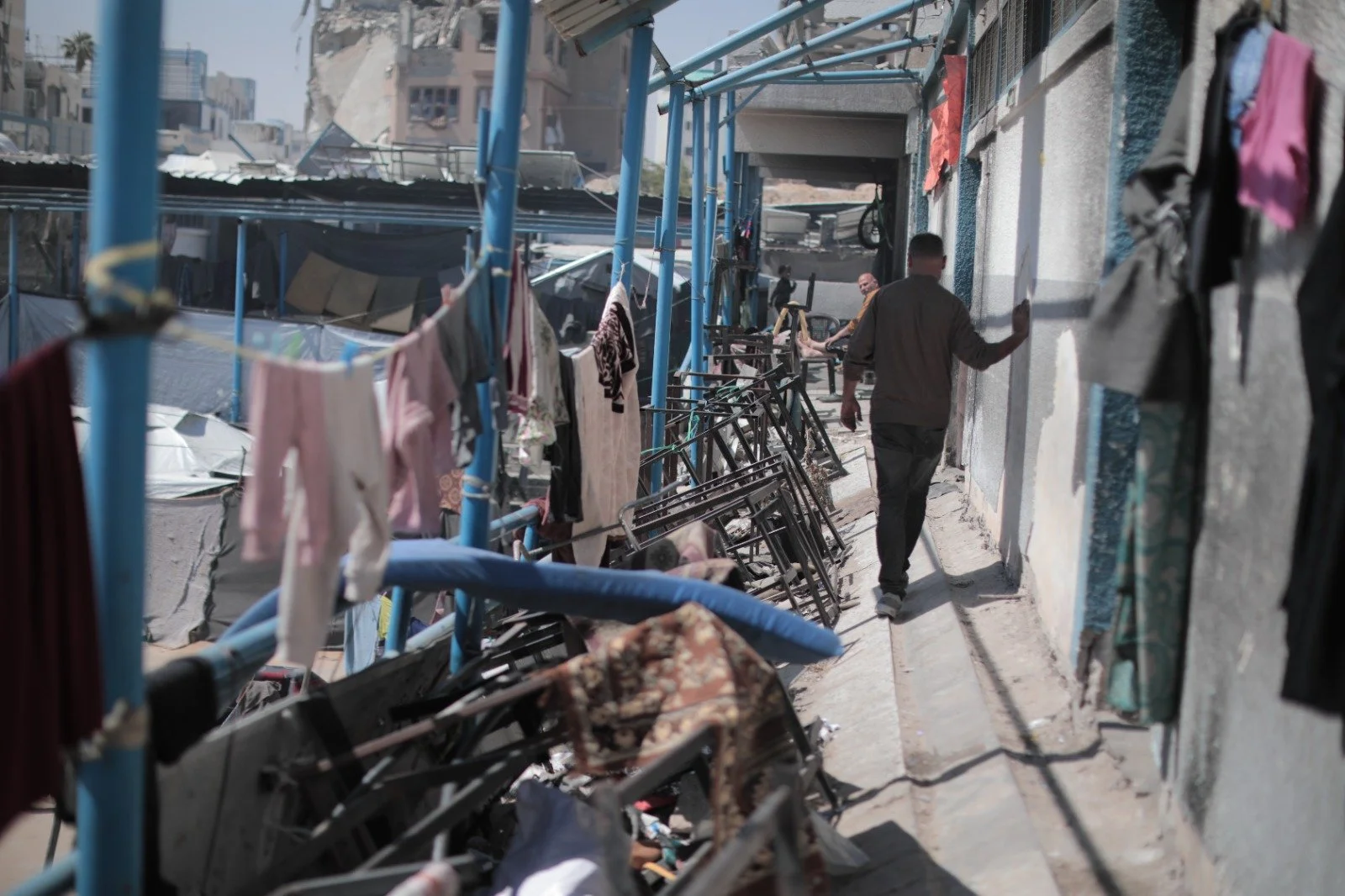Aid that doesn’t listen, fails.
Ground Truth Solutions works with people affected by crisis to ensure their views drive the decisions, and shape the systems that affect their lives.
What does humanitarian assistance look like in a world with less money, less global solidarity and ever-increasing numbers of people in need?
We spoke with more than 34,000 people in 12 countries about the challenges they face, their most pressing needs, fears and aspirations, and what they want global support actors to know and do differently. The world cannot afford – morally or financially – a humanitarian system that isn’t shaped by what crisis-affected people need.
This data points to five key imperatives – more necessary now than ever before – to make humanitarian assistance fit for today’s overlapping crises.

Photo credits: Getty Images - South Sudan
At a glance
We envision support systems for people in crisis that fully recognise their agency, and are responsive to their views, preferences, and needs.
News & stories
Latest reports & publications
Projects
Events
Find out more
Our work
We work with crisis-affected communities, listening to what they say they need to rebuild and thrive – and advocating for systems that act on their priorities.




